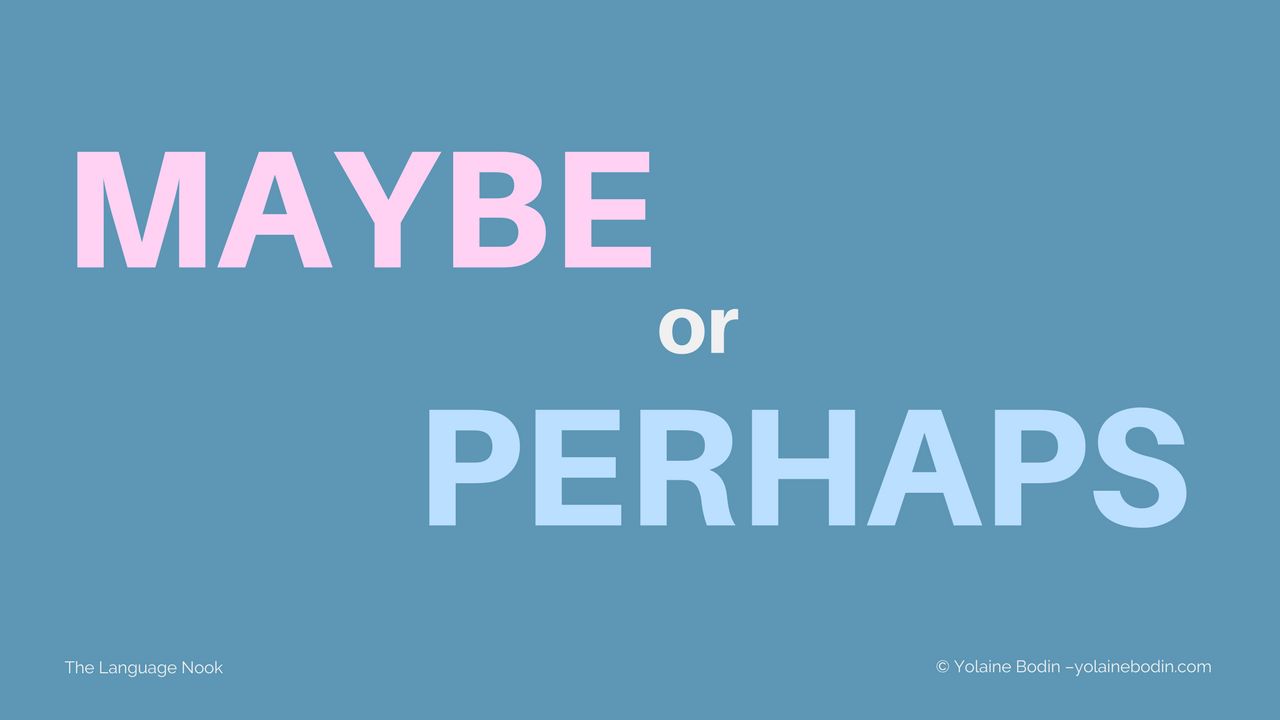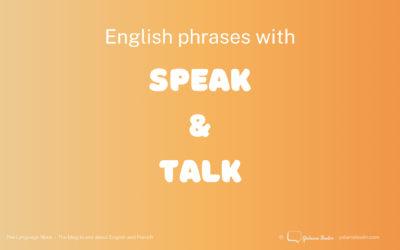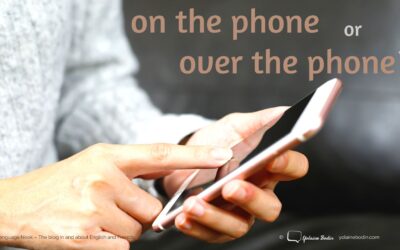So, someone has just asked you a question, but you’re not sure if your answer is yes or no. You’re hesitating. This is typically the situation where your answer will be “maybe”… or should it be “perhaps”?
What’s the difference between maybe and perhaps?
Actually, the answer here is very simple: there’s no difference in meaning! Both adverbs maybe and perhaps mean the same; they convey uncertainty, a possibility. You can use either when you are not sure, when you want to say “possibly”. However, perhaps is probably a little more formal.
Here is an example of a short dialogue:
– Shall we go out for a drink tonight? What do you think?
– Maybe / Perhaps, I don’t know. → You’re not sure yet if you want to go or not.
Here is another example:
– Will the parliament pass that new law?
– Maybe / Perhaps they will, but I doubt it. → You don’t really know if they will or not, it’s a possibility but it’s not certain.
And a third example:
– I’m not sure what dress to wear tonight. What do you think of this one? Is it too casual?
– Yes, perhaps / maybe. → You want to say it is a possibility but you are not sure.
You can always choose between maybe and perhaps without changing the meaning.
Careful! Although the meaning is the same, there is a difference in usage: perhaps can be used in the middle of a sentence, but not maybe.
This means you can use maybe in front position and in end position. You can can perhaps in any position.
So if you need to express a possibility in the middle of a sentence, then you have to choose perhaps.
Look at these examples:
- They are perhaps caught in a traffic jam. → NOT they are
maybecaught in a traffic jam - As you perhaps know, there used to be a phone box at the end of the road. → NOT As you
maybeknow…
There you are! You now know the difference between perhaps and maybe. Congratulations! 😀





0 Comments